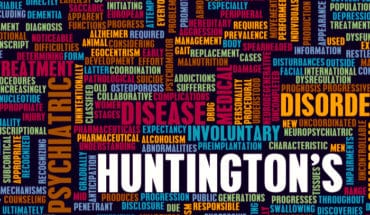Charity launches new online course to safeguard hospital patients with allergies: An anaphylaxis charity which offers training and support on food allergy safety has launched a brand-new online e-learning course for hospital ward staff.
The Anaphylaxis Campaign, which already provides several free and paid for allergy courses for individuals, schools and healthcare professionals, developed their new course after a patient safety alert issued by the Medicines and Healthcare Regulatory Agency in January 2020. The alert highlighted the lack of allergy awareness in hospital settings, putting patients with food allergies at risk.
Between 10 May 2017 and 10 May 2019, 55 hospital trusts reported 77 incidents relating to allergens in hospital, three of which involved the patient going into anaphylaxis, a severe and potentially life-threatening condition. Out of these incidents, 51 were due to an incorrect meal being given to the patient and 13 were due to inappropriate menu choice, either by the patient or staff member. Other causes were due to out-dated allergen information, patient allergies not communicated to kitchen staff, incorrect advice from kitchen staff, and conflicting information regarding a patient’s allergy.
Although it is mandatory for NHS organisations to report patient safety incidents which result in severe harm or death, food allergy incidents may not be seen as causing severe harm.
In November 2020 an Independent Review of NHS Hospital Food was published which also highlighted the need for greater awareness of food allergies.
The new Anaphylaxis Campaign AllergyWise for Hospital Ward Staff has been designed to help nurses, healthcare assistants, ward managers, dietitians and other ward staff improve their knowledge of food allergies and ensure the right meal gets to the right patient.
The course, which takes around two hours to complete, covers how to provide emergency treatment in case of an allergic reactions and understand how to safeguard vulnerable patients who are at risk of anaphylaxis. Staff will learn:
- about the practical management of food allergies on a hospital ward
- about common allergens and common causes of severe allergic reactions.
- about allergen avoidance management and how to reduce cross-contamination risks.
- how to recognise the signs and symptoms of a severe allergic reaction, know what to do in an emergency.
The course includes quick tests, interactive diagrams and videos for an easier, more engaging learning experience. The course does not need to be completed in one sitting as progress is saved. Students can also purchase a certificate once completed for £6.
Simon Williams, Chief Executive of the Anaphylaxis Campaign, says: “Being in hospital can been a very scary and isolating time without the added worry of a life-threatening allergic reaction and recent stats show that this is a big concern.
“Our AllergyWise courses address the growing need for training and understanding what to do in an emergency. This new course has been developed to help hospital staff with the knowledge and understanding to keep patients with serious allergies safer.”
Tanya Wright, specialist allergy dietitian at St Mary’s Hospital London, says:
“This is an excellent course and the format is very engaging. The quizzes and final quiz at the very end are really useful.”
To register for the AllergyWise for Hospital Ward Staff course, please visit www.allergywise.org.uk
Anaphylaxis Campaign was formed in 1994 by Honorary President David Reading after his 17-year-old daughter Sarah sadly passed away following an allergic reaction to peanuts. We are the only UK wide charity operating solely for the growing numbers of people at risk from severe allergic reactions and anaphylaxis.
Aimmune have supported the hospital food project through a grant – the grant does not constitute the Charity’s endorsement of Aimmune’s products or services and is fully compliant with the ABPI Code of Conduct.
Anaphylaxis is a severe and often sudden allergic reaction. It can occur when someone with allergies is exposed to something they are allergic to. Reactions usually take place within minutes and rapidly progress but can occur up to 2-3 hours later. It is potentially life-threatening and always requires an immediate emergency response.
- Gut microbiome could delay onset of type 1 diabetes - 3rd April 2025
- The da Vinci 5 Robot Is Set To Transform Bariatric Care: - 31st March 2025
- Beyond money: the hidden drivers fuelling child food insecurity - 31st March 2025






